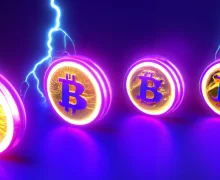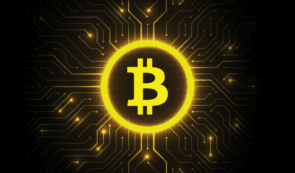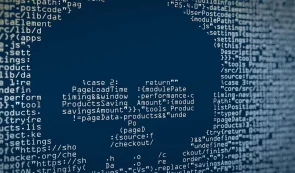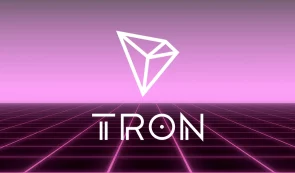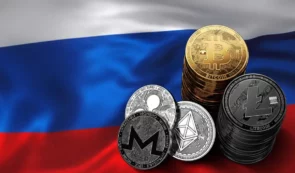What is Decentralized Finance (DeFi)?

Decentralized Finance, commonly known as DeFi, has emerged as a groundbreaking phenomenon within the cryptocurrency and blockchain space. In simple terms, DeFi refers to the use of blockchain technology and smart contracts to recreate traditional financial systems in a decentralized manner. This article aims to provide a comprehensive overview of DeFi, exploring its key concepts, benefits, challenges, and potential impact on the financial industry.
Understanding Decentralized Finance (DeFi)
DeFi is a term that encompasses various financial applications and services built on blockchain networks. Unlike traditional Finance, which relies on centralized intermediaries like banks, DeFi leverages decentralized technologies to enable peer-to-peer transactions, lending, borrowing, trading, and other financial activities. By removing intermediaries, DeFi aims to enhance efficiency, transparency, accessibility, and security in financial transactions.
Core Principles of DeFi
- Openness and Accessibility: DeFi protocols are typically open-source, meaning their underlying code is freely available for anyone to review, modify, and use. This openness fosters innovation, collaboration, and accessibility, allowing individuals worldwide to participate in DeFi applications and services.
- Interoperability: DeFi aims to create a seamless ecosystem where different protocols and applications can interact with one another. Interoperability enables the composability of DeFi, allowing developers to combine various protocols to create new and more complex financial instruments and services.
- Security and Trustlessness: DeFi relies on the security and immutability of blockchain technology. Smart contracts, which execute predefined actions when certain conditions are met, ensure that transactions occur without the need for trust between parties. Additionally, DeFi applications use audited and tested code to mitigate vulnerabilities and minimize the risk of hacking or fraud.
Key Components of DeFi
Decentralized Exchanges (DEXs) are platforms that enable direct peer-to-peer trading of cryptocurrencies, eliminating the need for intermediaries. Unlike traditional exchanges, DEXs utilize smart contracts to facilitate trades directly between users. This approach enhances privacy and offers users more control over their funds.
In the world of Decentralized Finance (DeFi), lending and borrowing can be conducted in a decentralized manner. Users have the opportunity to lend their cryptocurrencies and earn interest or borrow assets by providing collateral with their existing holdings. These transactions are executed through smart contracts, removing the reliance on traditional lenders and making financial services more accessible to a broader audience.
To address the issue of volatility in the cryptocurrency market, stablecoins play a crucial role in the DeFi ecosystem. Stablecoins are cryptocurrencies that are designed to maintain a stable value by pegging them to an underlying asset such as fiat currency or commodities. By leveraging stablecoins, DeFi platforms can provide a level of stability, enabling users to transact with reduced exposure to the price fluctuations associated with other cryptocurrencies.
Automated Market Makers (AMMs) are integral to the operation of decentralized exchanges. They operate using smart contracts and liquidity pools to facilitate continuous trading and determine asset prices. Unlike traditional exchanges that rely on order books, AMMs enable users to trade tokens instantly. This automated approach enhances efficiency and simplifies the trading process on DEXs.
Benefits and Potential Impact
- Financial Inclusion: DeFi has the potential to extend financial services to the unbanked and underbanked populations worldwide, enabling them to access loans, savings accounts, and investment opportunities.
- Transparency and Auditability: The transparent nature of blockchain technology ensures that all transactions and activities within the DeFi ecosystem can be verified and audited. This transparency reduces the risk of fraud and increases trust among users.
- Lower Costs and Greater Efficiency: By eliminating intermediaries, DeFi reduces costs associated with traditional financial services, such as fees for transactions, loans, and asset management. It also facilitates faster and more efficient settlement processes.
- Innovation and Experimentation: DeFi’s open and permissionless nature encourages innovation and experimentation. Developers can build upon existing protocols and create new financial products and services, expanding the possibilities within the decentralized ecosystem. This fosters competition and drives the development of more efficient, user-friendly, and inclusive financial solutions.
Challenges and Risks
While blockchain technology provides an enhanced level of security, the decentralized nature of DeFi introduces new risks that users should be aware of. Smart contract vulnerabilities, potential hacking attempts, and regulatory uncertainties are some of the factors that can expose users to financial losses. It is important for individuals engaging in DeFi to exercise caution, stay informed about security best practices, and take appropriate measures to protect their assets.
As DeFi continues to gain popularity, ensuring scalability becomes a critical challenge. Blockchain networks may experience congestion, resulting in slower transaction speeds and higher fees during periods of high demand. These limitations can hinder the seamless user experience that DeFi strives to offer. It is crucial for the DeFi community to explore and implement scalable solutions to accommodate the growing user base and maintain efficient transaction processing.
The rapidly evolving nature of DeFi poses challenges for regulators around the world. Striking a balance between encouraging innovation and safeguarding consumer interests requires the establishment of appropriate regulatory frameworks. Addressing concerns related to investor protection, anti-money laundering (AML) compliance, and privacy is essential for creating a well-regulated DeFi ecosystem that fosters trust and stability.
DeFi can be complex and technical, which can present a barrier to entry for newcomers. Understanding fundamental concepts such as smart contracts, wallets, private keys, and decentralized applications is crucial for individuals to safely participate in the DeFi ecosystem. Promoting user education and awareness initiatives can help bridge the knowledge gap, empower users with the necessary information, and promote responsible engagement with DeFi protocols and platforms.
Future Outlook for DeFi
Despite the challenges, the potential of DeFi to disrupt and revolutionize traditional Finance is significant. As the technology matures and scalability solutions are implemented, we can expect increased adoption of DeFi in mainstream Finance. Collaboration between DeFi projects, traditional financial institutions, and regulators will play a crucial role in shaping the future of decentralized Finance.
Conclusion
Decentralized Finance (DeFi) represents a paradigm shift in the financial industry, offering a decentralized, transparent, and inclusive alternative to traditional financial systems. By leveraging blockchain technology and smart contracts, DeFi provides users with greater control, accessibility, and efficiency in managing their financial activities. While challenges and risks exist, the potential benefits and impact of DeFi on global Finance make it a sector worth closely monitoring as it continues to reshape the financial landscape.
